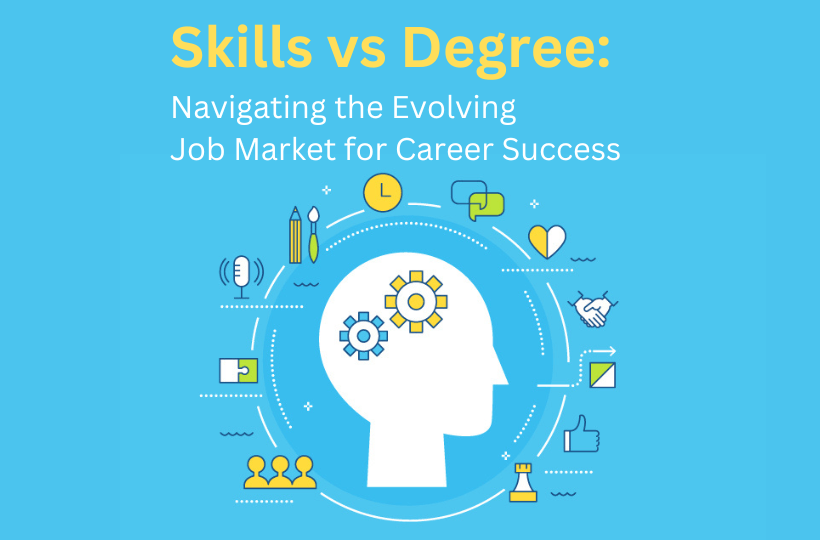In today’s rapidly evolving business world, a quiet revolution is taking place—one that challenges the traditional hierarchy of qualifications. The mantra “Skill First, Degree Second” is gaining momentum as companies prioritize real-world capabilities over formal academic credentials. This shift is not just a trend; it’s a strategic response to the dynamic needs of the modern workforce.
The Changing Landscape of Hiring
For decades, a college degree was considered the golden ticket to corporate success. It was seen as proof of intelligence, discipline, and readiness for the professional world. However, with the rise of digital transformation, automation, and AI-driven tools, the value of traditional degrees is being re-evaluated.
Businesses are increasingly recognizing that degrees alone don’t guarantee competence. What matters more is whether a candidate can adapt, solve problems, and deliver results in real-time. This is especially true in sectors like technology, marketing, design, sales, and entrepreneurship—fields where hands-on skills often outshine theoretical knowledge.
Tech Giants Leading the Way
Major corporations like Google, IBM, and Apple have removed degree requirements for many of their job roles. Instead, they focus on practical assessments, portfolio reviews, and real-life problem-solving challenges. The rise of online certifications, coding bootcamps, and skill-based training programs is offering alternatives that are more aligned with current job demands.
For instance, someone with strong programming skills from platforms like Coursera, Udemy, or freeCodeCamp might be more job-ready than a computer science graduate who lacks hands-on experience. This approach widens the talent pool, allowing self-taught professionals, career switchers, and non-traditional learners to compete on equal footing.
The Entrepreneurial Edge
Entrepreneurs and startups are especially supportive of skill-first hiring. In a lean business environment, there’s little room for lengthy onboarding or theoretical learning curves. Whether it’s digital marketing, UI/UX design, or business development, results matter more than diplomas.
Moreover, in a gig economy where freelancing and contract work are thriving, portfolios, client feedback, and tangible outcomes carry more weight than academic transcripts.
Advantages of a Skill-First Approach
-
Diversity and Inclusion: It opens doors for people from varied socio-economic backgrounds who may not have had access to higher education.
-
Agility: Skills can be learned faster and adapted to changing technologies, unlike rigid degree programs.
-
Cost-Effectiveness: Upskilling through online courses or vocational training is often cheaper and faster than traditional college education.
-
Performance-Oriented Culture: It promotes a workplace where merit and output define success, not just educational pedigree.
Rethinking Education and Recruitment
This isn’t to say degrees are obsolete. In professions like medicine, law, or engineering, formal education remains critical. However, for many modern roles, a hybrid approach is emerging—where foundational learning (degree) is supplemented or even replaced by continuous, skill-based learning.
Employers must rethink their recruitment frameworks. Instead of filtering resumes based on education, they can use skill assessments, simulations, and project-based evaluations to find the right fit.
Final Thoughts
“Skill First, Degree Second” isn’t just a hiring philosophy—it’s a mindset shift that values capability, creativity, and continuous learning. In an age where knowledge is abundant and accessible, the true differentiator is how well one can apply it. As businesses navigate an uncertain future, those who embrace this new credentialing logic will attract the most capable and adaptable talent.










